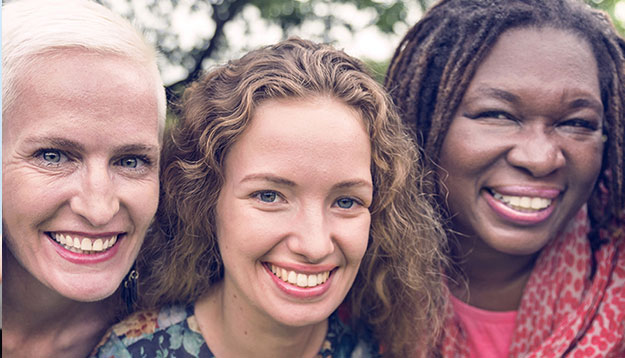My second son, Zeke, was born on December 24th. Like most families with new babies, over the past three months we have received a near constant stream of visitors to our home. Some come all the time (grandparents), others with less frequency (close friends), and still others have visited only once (former colleagues). Most have brought a gift for the baby, and many a gift for Henry, who just turned two, as well, so that he won’t feel left out. Our visitors – and I stand by these generalizations – are thoughtful, kind, and generous. And almost to a one, they have had something else in common. Namely, upon saying hello to Henry, they have all asked him the exact same one or two questions:
Are you so excited to be a big brother?
Do you love Baby Zeke?
They may not all use exactly the same words, but the gist is always the same: are you experiencing a specific – and always positive – emotion surrounding the birth of your baby brother and your new role in the family? Henry typically pauses, looks down at his truck (he’s always holding a truck), looks back up, and responds, “Yeah.” Then he’ll either wander off to play on his own, or attempt to engage our visitor with a complete non-sequitor (usually something along the lines of, “Wipers bus swish swish!”).
It’s obvious – though notable nonetheless – that no one asks my husband or me similar questions. Am I so excited to be a mother of two? Sure. Excited and terrified and blissful and exhausted and incredulous, to name only the reactions I’ve had in the past hour. Do I love Baby Zeke? Again: of course. Sometimes I love him so much I want to inhale his whole little body, other times I want to shake him until he sleeps, other times I resent him for taking my time away from Henry, and still other times his small size and newness to this crazy planet bring a tear to my eye that I don’t even have the words to explain.
So why do people ask toddlers these questions when a new sibling arrives? I think the answer comes in two parts. First, when we speak to young children, we attempt to simplify not only our words, but also the concepts they describe. This is clearly both necessary and important. We can’t ask toddlers questions the same way we ask adults, at least not if we want to have (or, at least, shoot for) a dialogue with them. Our visitors have asked me questions that Henry couldn’t possibly answer: How is everything going? How is everyone adjusting? Simplifying words and concepts, though, is different from restricting emotional reactions. Although Henry may not understand or have the words to describe all of the feelings he has in response to Zeke’s arrival, the feelings themselves are not simple, and he needs to be able to experience and feel safe expressing them all.
Which brings me to the second reason these questions are so common. That is, we – the grown-ups – are ourselves wary of complicated emotions. Although we have come to accept them in adults, we would prefer that little children be shielded from them, and, simply put, be happy all the time. It may not be what we intend – most likely we aren’t even conscious of it –but we, as adults, parents, a culture as a whole, do not want to think about toddlers experiencing sadness, distress, anger, or anxiety. Jacob falls: “You’re OK!” Olivia gets teary: “Honey, don’t be sad.” Michael yells, and is met with: “There’s no reason to get so upset!”
The problem is that, although Jacob may not have gotten hurt, he was scared. And Olivia was feeling sad, despite instructions not to. And in Michael’s world, there was plenty of reason to be upset. When we as grown-ups, limit our children’s emotional experiences, over time we send a clear message: this set of happy feelings is OK, and this other set of not-happy feelings is not OK. But not-happy feelings are a part of life – like it or not. Our best intentions notwithstanding, we are not doing our children any favors.
A new client inquired about my services a few months ago: “My husband and I have a three-year-old daughter and a new baby on the way; we would love to talk to you about how to make the experience as easy as possible for her. We just want her to love her baby brother!” An understandable request, to be sure, but also one that isn’t realistic and that has the potential to set the whole family up for anxiety, disappointment, or both. Having a new sibling is not an easy transition for a toddler. What’s more, making it “as easy as possible” for them often means making it harder for us, because it means tolerating their distress, or anger, or sadness. Would my client’s little girl love her baby brother, as her parents wanted? Yes – sometimes. When she wasn’t busy hating him. Both reactions are normal and expected; it’s us, the parents, who tend to want to stamp out the latter.
Which brings me back to Henry. Is he excited to be a big brother? Sure. When he’s not furious about it. Does he love Baby Zeke? Absolutely. Though also he likes to bite him sometimes when we’re not looking. My best guess is that he’s thrilled about the newest member of our family, but that he also misses the way our family was before. Sometimes he understands that Zeke is real and here to stay; other times, he treats him like a doll or toy. Sometimes he’s excited when Zeke shows up at his daycare; other times, he seems territorial, unhappy about sharing his home away from home with a non-verbal, drooling interloper. As his mom, I do my best – no doubt imperfectly – to accept all of his feelings, not just the happy ones. I tell him I’m proud of him when he’s being “such a great big brother,” but I also tell him how much I love him when he seems frustrated he has to share Mommy at bedtime. I give him the words for these feelings so that he can learn – and so he can know it’s OK – to use them himself as he gets older.
And when one of our visitors asks if he is so excited to be a big brother and whether he loves Baby Zeke, I wait for him to respond in his way, then give him a squeeze and ask, “Sometimes?”




